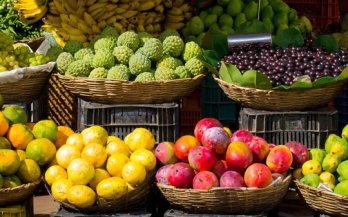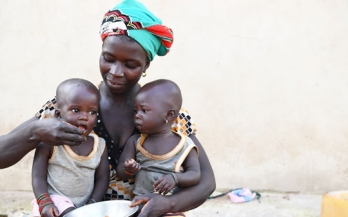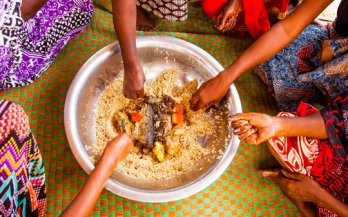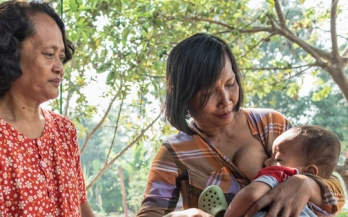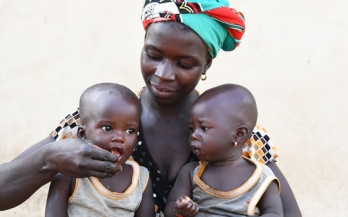Urban governance for nutrition is the process of making and implementing decisions that shape sustainable food systems to deliver better nutrition for people in cities. The Framework on Urban Governance for Nutrition and the guide for implementation provide guidance on how city governments and stakeholders can determine appropriate actions to address urban nutrition priorities.
Over half of the world’s population live in cities. By 2050, it is expected that almost 7 out of 10 people will reside in cities, with 90% of this growth occurring in Africa and Asia. Urbanisation is linked to increasing rates of overweight and obesity, yet undernutrition is also prevalent in cities. These areas are confronted by an increasingly complex challenge to address malnutrition in all its forms.
I just completed a trio of meetings in Asia (TICAD), Africa (AGRF) and North America (UN General Assembly) all of which had a strong set of dialogues around food systems, asking how they need to be rebuilt to promote human health, rural livelihoods and planetary health.
The framework comprises a set of drivers, plus four determinants (food supply chains, external food environments, personal food environments, and behaviours of caregivers, children and adolescents), which together influence the diets of children and adolescents.
The Global Alliance for Improved Nutrition (GAIN) launched today a new version of its main website and refreshed brand guidelines. The changes are designed to better communicate its work on transforming food systems to deliver better nutrition for all, especially the most vulnerable to malnutrition.
The FACT provides details on how to plan, design, implement, analyse, and report a FACT survey. It was designed to help stakeholders collect, analyse, and synthesise standardised data on quality, coverage, and consumption of fortified foods, and fills a gap in the availability of standardised tools to generate information to understand how well programmes are working and how to improve them.
On 3 and 4 July 2019, The Global Alliance for Improved Nutrition (GAIN) and The Consumer Goods Forum (CGF) organised a meeting in Geneva to discuss the why, what and how of improving employee nutrition. The meeting was attended by a broad range of stakeholders who are actively involved in Workforce Nutrition programmes. This paper reports on the discussions and outcomes of the workshop.
The Global Alliance for Improved Nutrition (GAIN) and the World Health Organization (WHO) organised a consultation in Geneva in June 2018, which brought together more than 80 researchers, practitioners, policymakers and youth organisations, as well as adolescents from Pakistan, Bangladesh, Indonesia and Zambia. This paper reports on the discussions and outcomes of the workshop.
This week is World Breastfeeding Week, honouring one of the most effective and cost-effective nutrition interventions around: human breastmilk contains all the nutrients needed for young infants, conveying health benefits for both babies and mothers.
In many parts of the world, children and adolescents do not receive the diets they need – in quantity, frequency, and quality – to survive, grow, and develop to their full potential.



